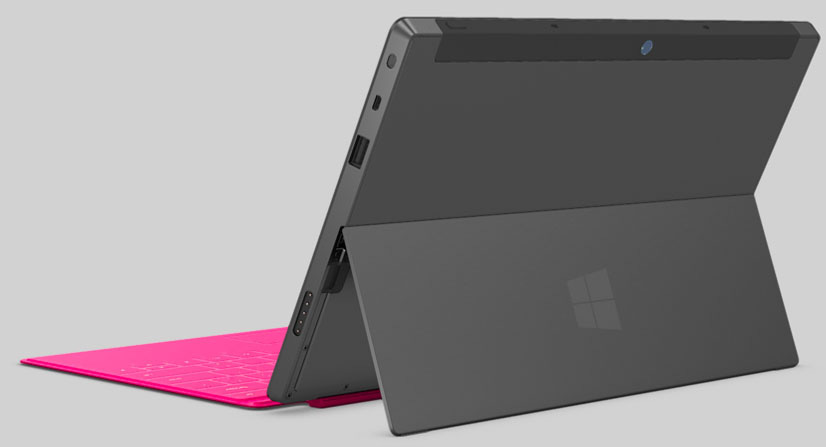Microsoft’s Surface computer has been rationed to a few lucky technorati and, in recent days, they’ve been giving their verdicts. Here’s what they’re saying: it’s both good and bad.

David Pogue’s thesis over at the Times is most easily digested: nice hardware, but the software’s lacking. “How would you like to move into a stunning mansion on a bluff overlooking the sea–in Somalia?” is the metaphor he uses. He all but drools over the tablet’s specs–though he wasn’t pleased with the “Touch Cover,” keyboard/cover hybrid–but when it comes to the software, he found it “sometimes sluggish,” and was very disappointed with the Windows App Store. (It doesn’t even have Angry Birds!) Of the 3,500 apps populating the store, he called many “bare-bones or junky.”
Further bolstering my idea that Microsoft’s future may increasingly be as a hardware company (see my post “Microsoft: Keep Making Hardware”) is Pogue’s observation: “how ironic that what lets the Surface down is supposedly Microsoft’s specialty: software.”
Gizmodo ultimately gives the device a rating of 2.5, or a “meh,” on it’s five-point scale. The article’s “Should you buy it?” conclusion is simply, “No.” They advise you to wait and make sure that app ecosystem truly fleshes itself out. And, while they say the Surface is “handsome” and “instantly more charming than any Windows device that’s come before it,” ultimately they find it “undercooked,” and full of “annoyances, cracks, and flaws.” The Windows RT operating system is also a let-down, they say: “a tepid tablet OS pretending to be a computer’s.”
Meanwhile, the Verge was much more sanguine about the device, giving it a 7.0 out of 10. Again that word “handsome” rears its head. Reviewer Joshua Topolsky found the battery life “consistent and impressive” and the tablet overall to be “incredibly speedy,” at least with “most basic OS functionality.” It was only when he tried to open too many apps that the device began to appear sluggish. Topolsky liked the Touch Cover well enough, and was a big fan of the thicker Type Cover, with its keys that actually travel; he called it “a joy to use,” but he complains that it’s expensive (the Type Cover is $129). Ultimately, the factors that dragged down the Verge score included “hit or miss” performance, a weak ecosystem, and the Surface’s failure to live up to its promise as a tablet/laptop hybrid of sorts.
Finally, Walt Mossberg at the Journal gives a mostly positive, though still somewhat mixed, review. He seems to have been testing it for perhaps the longest–three weeks–and he says, simply, “I like it.” It’s not a “cheap iPad knockoff,” he says, but a sincere endeavor at something different. He thinks that the Surface’s two keyboard options are better than any add-ons he’s seen for iPad, which goes some way towards substantiating Microsoft’s claim that Surface can be a productivity tablet. Mossberg found MS Word, Excel, and PowerPoint to all work “fine.” Ultimately, though, he too laments the “paucity of apps.”
It’s striking how all the reviews appeal to landscape metaphors to describe what they feel about Microsoft’s disappointing app store. There was Pogue’s Somalia quip, while CNET calls it “an app desert,” and Gizmodo chimes notes that it, “feels more like tundra.”
With the more beefed-up version of the Surface due in January–it will run a full version of Windows 8, and have stronger specs–the question is, will Microsoft’s and its Surface find their way out of the mobile wilderness?
Keep Reading
Most Popular
Large language models can do jaw-dropping things. But nobody knows exactly why.
And that's a problem. Figuring it out is one of the biggest scientific puzzles of our time and a crucial step towards controlling more powerful future models.
How scientists traced a mysterious covid case back to six toilets
When wastewater surveillance turns into a hunt for a single infected individual, the ethics get tricky.
The problem with plug-in hybrids? Their drivers.
Plug-in hybrids are often sold as a transition to EVs, but new data from Europe shows we’re still underestimating the emissions they produce.
Stay connected
Get the latest updates from
MIT Technology Review
Discover special offers, top stories, upcoming events, and more.